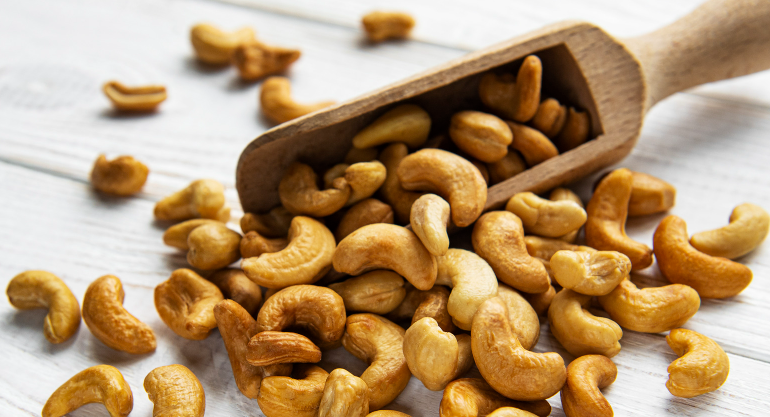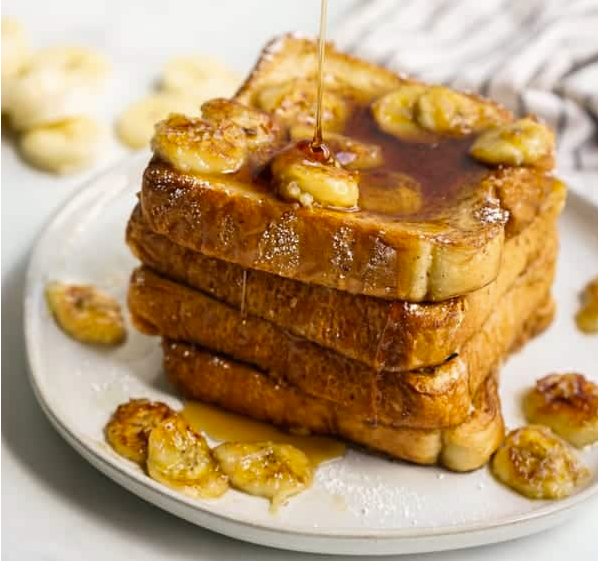
Introduction: Exploring Nutritional and Culinary Aspects of Cashew Substitutes
In the realm of culinary delights, cashews have long held a coveted position, gracing dishes with their distinctive nutty flavor and creamy texture. From velvety vegan sauces to indulgent desserts, cashews have carved a niche as a versatile ingredient capable of enhancing a wide array of recipes. However, there are instances when the need for alternatives arises—be it due to allergies, dietary preferences, or simply the quest for culinary experimentation. In this comprehensive guide, “Cashew Alternatives: Your Comprehensive Guide to Substituting Nuts in Recipes,” we embark on a journey to uncover a diverse range of substitutes that can seamlessly step into the role of cashews while maintaining the essence of your favorite dishes.
Cashews, in addition to their delectable taste, bring a wealth of nutritional benefits to the table. Packed with heart-healthy monounsaturated fats, essential minerals such as magnesium, and a respectable dose of protein, cashews offer a wholesome addition to any diet. Their unique creaminess, when blended, creates luscious bases for sauces, creamy soups, and dairy-free cheeses, making them a cornerstone of plant-based gastronomy. From the savory realm of pesto pasta to the sweet world of cashew-based ice creams, these nuts have become an integral part of countless culinary creations.
Nonetheless, there are times when circumstances warrant a deviation from the tried-and-true cashew path. Whether faced with nut allergies, seeking alternatives due to dietary restrictions, or simply seeking a new twist on old recipes, the search for suitable substitutes becomes essential. The need for a comprehensive resource that not only lists alternatives but also guides readers on how to seamlessly integrate these substitutes into their culinary endeavors becomes apparent.
This guide will delve into the nuanced art of substituting cashews in various dishes. From providing insights into the nutritional profile and culinary role of cashews to outlining the factors crucial for successful substitution, we will equip you with the knowledge needed to confidently make the switch. The subsequent sections will explore a spectrum of substitute options, detailing their flavor profiles, textures, and applications. Moreover, we will delve into adapting recipes to accommodate these substitutes, ensuring that your culinary creations maintain their integrity and deliciousness.
By embracing the world of cashew substitutes, you open the door to a realm of culinary possibilities. While the allure of cashews is undeniable, the substitutes discussed here promise their own unique set of flavors and textures that can elevate your dishes in unexpected ways. So, join us on this culinary exploration, as we unveil the world beyond cashews and empower you to create delectable dishes that cater to a diverse array of tastes and dietary requirements.
Nutritional Profile and Culinary Role of Cashews
Cashews, those buttery and versatile nuts, have long been a staple ingredient in kitchens worldwide. In our quest to explore culinary options beyond the norm, it’s crucial to understand the nutritional essence and the distinctive role that cashews play in our recipes. From rich curries to velvety vegan cheesecakes, cashews have been celebrated for their creamy texture, subtly sweet flavor, and abundant nutritional benefits. In the realm of plant-based cooking, they’re often hailed as nature’s dairy alternative, seamlessly transforming into luscious sauces, dips, and dressings.
Notably, cashews are a powerhouse of nutrients. They’re a great source of healthy fats, protein, and dietary minerals, making them a valuable addition to both savory and sweet dishes. Their high magnesium content promotes bone health and helps regulate blood pressure, while their copper content supports energy production and antioxidant defense. Moreover, cashews contribute a distinct nuttiness that enhances the overall depth of flavors in a multitude of recipes.
Beyond their nutritional profile, cashews have carved out a unique culinary niche due to their versatility. When soaked and blended, they yield a creamy texture akin to heavy cream, making them a go-to ingredient for crafting dairy-free alternatives in vegan and lactose-intolerant diets. This ability to create luxurious textures is why cashews are often used to construct creamy soups, dreamy pasta sauces, and delectable desserts that rival their dairy counterparts.
Understanding the pivotal role cashews play in various dishes helps us appreciate the complexity they bring to the culinary landscape. As we embark on a journey to explore suitable alternatives for cashews, it’s imperative to consider how these substitutes will fulfill the roles of creaminess, flavor, and nutrition that cashews inherently provide. From almonds to sunflower seeds, each alternative comes with its own set of characteristics and possibilities. In the subsequent sections of this guide, we’ll delve deeper into these substitute options, analyzing their potential to seamlessly integrate into your favorite recipes while maintaining the essence that makes cashews so remarkable.
In the pursuit of culinary excellence and adaptability, embracing the world of cashew substitutes opens the door to a diverse range of flavors and textures. Let’s journey together through the realm of substitutes, understanding how each option can contribute to your culinary creations, whether you’re seeking a nut-free option, addressing allergies, or simply expanding your culinary repertoire.
Substitute Options and Their Applications
In the realm of culinary creativity, finding the right substitutes for cashews opens up a world of possibilities. Whether you’re catering to allergies, dietary preferences, or simply need an alternative due to availability, a variety of ingredients can step up to recreate the creaminess, nutty flavor, and texture that cashews provide. Almonds, often celebrated for their health benefits, can seamlessly replace cashews in many recipes.
Their mild flavor and slightly firmer texture make them an ideal candidate for savory dishes like creamy pasta sauces or nut-based spreads. Sunflower seeds, on the other hand, offer a delightful nutty taste with a hint of earthiness. Blending them with a touch of oil can yield a creamy base for dressings or dips, perfect for those seeking a nut-free option. If you’re aiming for a plant-based twist, consider using silken tofu to replicate the velvety consistency of cashews. Its neutral taste makes it a versatile choice for both sweet and savory applications, such as cheesecakes and creamy soups. For those craving a tropical essence, coconut cream steps in as a luscious substitute. Its richness pairs well with curries, desserts, and beverages, adding a distinct flavor while maintaining a creamy consistency.
Finally, white beans might seem unconventional, but their smooth texture and mild taste can surprise your taste buds when used as a base for sauces, dips, and even vegan ice creams. As you delve into the world of cashew alternatives, keep in mind that each substitute brings its unique profile to the table. Experimentation is key, allowing you to tailor your choices based on the specific demands of your recipes. By embracing these substitute options, you’ll not only overcome culinary challenges but also uncover new dimensions of taste and texture that enhance your dishes in unexpected ways.
10 Substitute Options and Their Applications
When it comes to finding suitable alternatives for cashews in your culinary endeavors, a world of possibilities awaits. Whether you’re dealing with allergies, dietary restrictions, or simply wish to explore new flavors, these substitute options will step up to the plate. From almonds to silken tofu, each alternative brings its unique characteristics to the table, ensuring your dishes maintain that rich texture and nutty essence you desire.
1. Almonds
A popular choice for their slightly sweet, nutty flavor and versatility, almonds can seamlessly step in for cashews. Blending almonds with liquid can yield a creamy consistency akin to cashew cream, making them a go-to option for vegan sauces, dips, and desserts. The slightly firmer texture of almonds lends itself well to providing a satisfying crunch in both sweet and savory applications.
2. Sunflower Seeds
If you’re seeking a nut-free alternative with a neutral flavor profile, sunflower seeds are an excellent pick. These seeds offer a creamy texture when blended, making them a perfect base for dressings, spreads, and plant-based cheeses. Their affordable price and widespread availability make sunflower seeds a practical choice for experimenting with various recipes.
3. Tofu
Silken tofu’s silky-smooth texture can mimic cashew cream, and its neutral taste makes it adaptable to various flavor profiles. Ideal for creamy pasta sauces, puddings, and vegan cheesecakes, silken tofu seamlessly incorporates into recipes, providing a protein-rich base that caters to both taste and nutrition.
4. Coconut Cream
For those craving a tropical twist, coconut cream steps in as a decadent substitute. With its rich, velvety texture and subtle coconut undertones, it’s an excellent candidate for curries, soups, and creamy desserts. Keep in mind that coconut cream can impart a hint of coconut flavor to your dishes, which can be a delightful enhancement depending on your recipe.
5. White Beans
Surprising as it may seem, white beans offer a remarkable creaminess that can rival cashews. Their mild flavor allows them to blend seamlessly into sauces, dips, and dressings without overpowering the other ingredients. Moreover, white beans bring an extra dose of protein and fiber to your dishes, making them a nutritious alternative worth considering.
6. Macadamia nuts
With their delicate yet rich taste, are an excellent option for replacing cashews. They share a similarly buttery texture that lends itself well to creating creamy sauces, dips, and vegan cheeses. Macadamia nuts’ mild flavor allows them to seamlessly blend with both sweet and savory dishes, making them a versatile choice across cuisines.
7. Walnuts
Renowned for their health benefits, can also play a role in your quest for cashew alternatives. While they have a more pronounced nutty taste, they bring a satisfying crunch and distinct earthiness to dishes. Ground walnuts can be used as a base for sauces, and their texture adds a delightful contrast in salads, baked goods, and even vegan ice creams.
8. Brazil nuts
These nuts introduce a slightly sweeter note to your creations. Their unique taste works well in both sweet and savory dishes, making them a valuable candidate for cashew substitutes. Beyond flavor, Brazil nuts are rich in selenium, providing an added nutritional benefit to your recipes. They can be ground and used in dressings, spreads, and dairy-free custards.
9. Pumpkin seeds
Pumpkin seeds, also known as pepitas, bring a distinct twist to the world of cashew alternatives. With their rich green color and nutty taste, they can be transformed into creamy textures similar to cashews when blended. Pumpkin seed-based sauces offer a unique earthiness, especially suitable for Mexican-inspired dishes, pesto’s, and even non-dairy yogurts.
10. Pistachios
Among the diverse substitutes, pistachios stand out with their distinctive color and flavor profile. Their slightly sweet and nutty taste can add a touch of elegance to your dishes. When blended, pistachios create a texture similar to cashews, making them suitable for spreads, pesto’s, and certain desserts. Their vibrant green hue can also bring visual appeal to your creations.
As you explore these substitute options, it’s essential to consider the specific demands of your recipes. While each alternative offers its own set of advantages, it’s wise to experiment and find the perfect match for your desired outcome. Remember that the quantities and preparation techniques may differ for each substitute, so don’t hesitate to adjust and refine your approach. By embracing the versatility of these alternatives, you not only cater to various dietary preferences but also open the door to new flavor combinations and culinary possibilities. Your culinary journey can be as delightful as it is diverse when you venture beyond cashews into the realm of these creative substitutes.
Culinary Tips and Sample Recipes
Successfully adapting recipes to accommodate cashew substitutes requires a thoughtful approach and a touch of creativity. Whether you’re opting for almonds, sunflower seeds, tofu, coconut cream, white beans, or silken tofu as your alternative, here are some expert culinary tips to ensure your dishes maintain their deliciousness and authenticity.
1. Balancing Flavors and Textures: When selecting a substitute, consider the flavor profile and texture of the original cashews. Almonds bring a slightly sweet and nutty taste, while sunflower seeds offer a mild nuttiness. Tofu provides a neutral base and creaminess, and coconut cream lends a tropical undertone. White beans contribute a smooth consistency, and silken tofu introduces silkiness. Experiment with proportions and combinations to achieve the desired taste and texture.
2. Gradual Blending: For nuts and seeds substitutes, blend gradually to avoid turning them into butter. This way, you’ll maintain the desired coarse texture that mirrors chopped cashews. In the case of tofu and coconut cream, blending until creamy ensures a smooth consistency that closely resembles cashew cream.
3. Seasoning and Spices: Enhance the flavor of your substitute by incorporating seasonings and spices that complement the dish. For example, when using white beans in a savory recipe, add herbs like rosemary or thyme. If substituting with silken tofu, infuse it with garlic and nutritional yeast for a savory punch.
4. Quantity Adjustments: Due to variations in water content and density, quantity adjustments are crucial. If substituting with almonds or sunflower seeds, slightly increase the quantity to match the creaminess of cashews. When using tofu or coconut cream, start with the recommended amount and adjust as needed based on the dish’s thickness.
5. Sample Recipes:
- Almond-Crusted Chicken: Replace cashews in a classic cashew-crusted chicken recipe with crushed almonds. The almonds bring a delightful crunch and nutty flavor to the dish, making it just as delectable.
- Sunflower Seed Pesto: Craft a flavorful pesto by swapping cashews for roasted sunflower seeds. Blend the seeds with basil, garlic, Parmesan cheese, olive oil, and lemon juice for a delightful twist on a traditional favorite.
- Coconut Cream Curry: Instead of cashew cream, prepare a luscious coconut cream curry. The rich and slightly sweet undertones of coconut cream pair perfectly with the spices in curries, creating a velvety sauce that’s both satisfying and indulgent.
- White Bean Dip: Transform your snack game by whipping up a white bean dip. Blend white beans with olive oil, lemon juice, garlic, and your favorite herbs. The result is a creamy dip that’s perfect for spreading on crackers or dipping with veggies.
- Silken Tofu Dessert: Craft a creamy dessert by substituting silken tofu for cashews in a cheesecake or mousse recipe. Blend the tofu with sweeteners and flavorings, then chill for a silky treat that’s as delightful as the original.
Incorporating these culinary tips and sample recipes into your cooking repertoire empowers you to confidently embrace cashew substitutes while retaining the essence of your favorite dishes. Remember, the journey of experimenting with substitutes opens up a world of culinary exploration, allowing you to create masterpieces that cater to various dietary preferences and culinary adventures.
Conclusion
In the journey to explore substitutes for cashews, it’s clear that culinary creativity knows no bounds. Through the insights provided in this guide, you’ve gained a deeper understanding of how to seamlessly integrate alternatives into your favorite recipes without compromising on taste, texture, or nutrition. As you embark on your cooking and baking experiments, keep in mind that flexibility and open-mindedness are key. Adapting to dietary restrictions or flavor preferences doesn’t mean sacrificing the essence of your dishes; instead, it offers an opportunity for innovation.
By experimenting with various cashew substitutes, you’re not only catering to different dietary needs but also broadening your culinary horizons. Whether you’re opting for the nuttiness of almonds, the creaminess of coconut cream, or the protein-packed punch of white beans, each substitute brings its own unique flair to the table. Remember that achieving the perfect balance may require a bit of trial and error, so don’t be discouraged if your first attempt doesn’t yield the exact result you envisioned. Cooking is an art, after all, and the canvas is your plate.
In this concluding chapter, we encourage you to take the knowledge you’ve acquired and infuse it into your culinary endeavors. Don’t hesitate to add your personal touch – a dash of creativity here and a pinch of innovation there – as you craft dishes that are both satisfying and reflective of your individual taste. The world of cooking is as much about tradition as it is about adaptation, and your willingness to explore alternative ingredients demonstrates your dedication to elevating your cooking game.
As you progress on your culinary journey, keep your kitchen a space of experimentation and enjoyment. Share your experiences with friends and family, and invite them to join you in embracing the versatility of cashew substitutes. From savory sauces to indulgent desserts, the substitutes you’ve discovered here have the potential to shine in a multitude of dishes.
In wrapping up, remember that the joy of cooking lies in the process as much as the final product. Each step you take, each ingredient you choose, and each experiment you undertake adds to your culinary repertoire. So, whether you’re accommodating allergies, dietary preferences, or simply embarking on a flavorful adventure, know that you’re part of a vibrant community of cooks who are reshaping traditions, one recipe at a time.
With this guide as your companion, you’re equipped with the knowledge to confidently step into the world of cashew substitutes. Embrace the unknown, celebrate the successes, and learn from the challenges. Your culinary journey is uniquely yours, and the path you forge will inspire not only your own kitchen creations but also the palates of those fortunate enough to savor them.










Leave a Reply